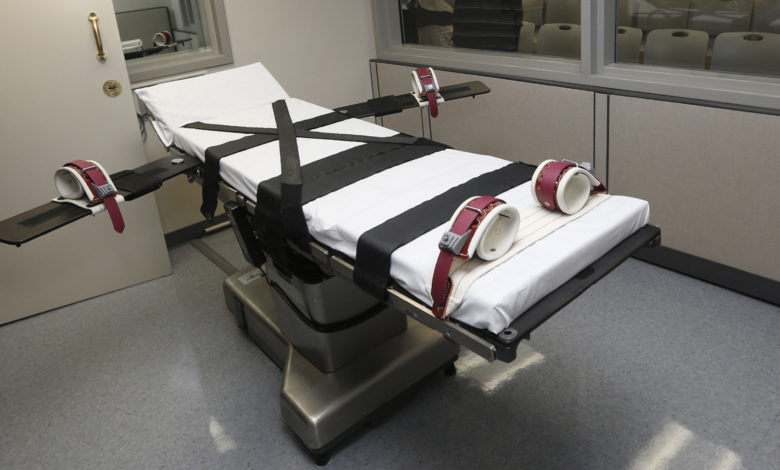Oklahoma panel denies clemency for death row inmate
Paves way for lethal injection

OKLAHOMA CITY (AP) — A state panel on Wednesday denied clemency for an Oklahoma death row inmate convicted of shooting and killing two people in Oklahoma City more than two decades ago, paving the way for his lethal injection next month.
The Oklahoma Pardon and Parole voted 4-1 to deny recommending clemency for Michael Dewayne Smith, 41, who has been sentenced to die for the slayings of Janet Moore, 41, and Sharath Pulluru, 22, in separate shootings in February 2002. Smith has exhausted his appeals and is scheduled to be executed on April 4.
Appearing in a video interview from death row with his hands shackled and wearing a red prison jumpsuit, Smith expressed his “deepest apologies and deepest sorrows to the families” of the victims, but denied that he was responsible.
“I didn’t commit these crimes. I didn’t kill these people,” Smith said, occasionally breaking into tears during his 15-minute address to the board. “I was high on drugs. I don’t even remember getting arrested.”
Prosecutors say Smith was a ruthless gang member who killed both victims in misguided acts of revenge and confessed his involvement in the killings to police and two other people. They claim he killed Moore because he was looking for her son, who he mistakenly thought had told police about his whereabouts. Later that day, prosecutors say Smith killed Pulluru, a convenience store clerk who Smith believed had disrespected his gang during an interview with a newspaper reporter.
During Wednesday’s hearing, prosecutors with the Oklahoma attorney general’s office played video of Smith’s confession to police in which he said: “I didn’t come there to kill that woman. She was just in the wrong place at the wrong time.”
Smith’s attorney, Mark Henricksen, argued that Smith is intellectually disabled, a condition worsened by years of heavy drug use, and that his life should be spared and he should be allowed to spend the rest of his life in prison. Henricksen said Smith was in a PCP-induced haze when he confessed to police and that key elements of his confession aren’t supported by facts.
“At the time of these homicides he was smoking PCP daily and heavily,” Henricksen said.
Henricksen said Smith’s trial attorneys also failed to present evidence of his intellectual disability to jurors.
But prosecutors disputed Henricksen’s claims of intellectual disability and say Smith remains a danger to society, noting that he has been caught with weapons on death row as recently as 2019 and that he remains involved with gang members who continue to communicate with him.
“He has expressed a desire to kill more,” said Assistant Attorney General Aspen Layman.
Unless a court halts Smith’s scheduled lethal injection, he will be the first inmate executed in Oklahoma in 2024 and the 12th since Oklahoma resumed executions in October 2021 following a nearly six-year hiatus resulting from problems with lethal injections in 2014 and 2015. Oklahoma has executed more inmates per capita than any other state since the 1976 reinstatement of the death penalty.



